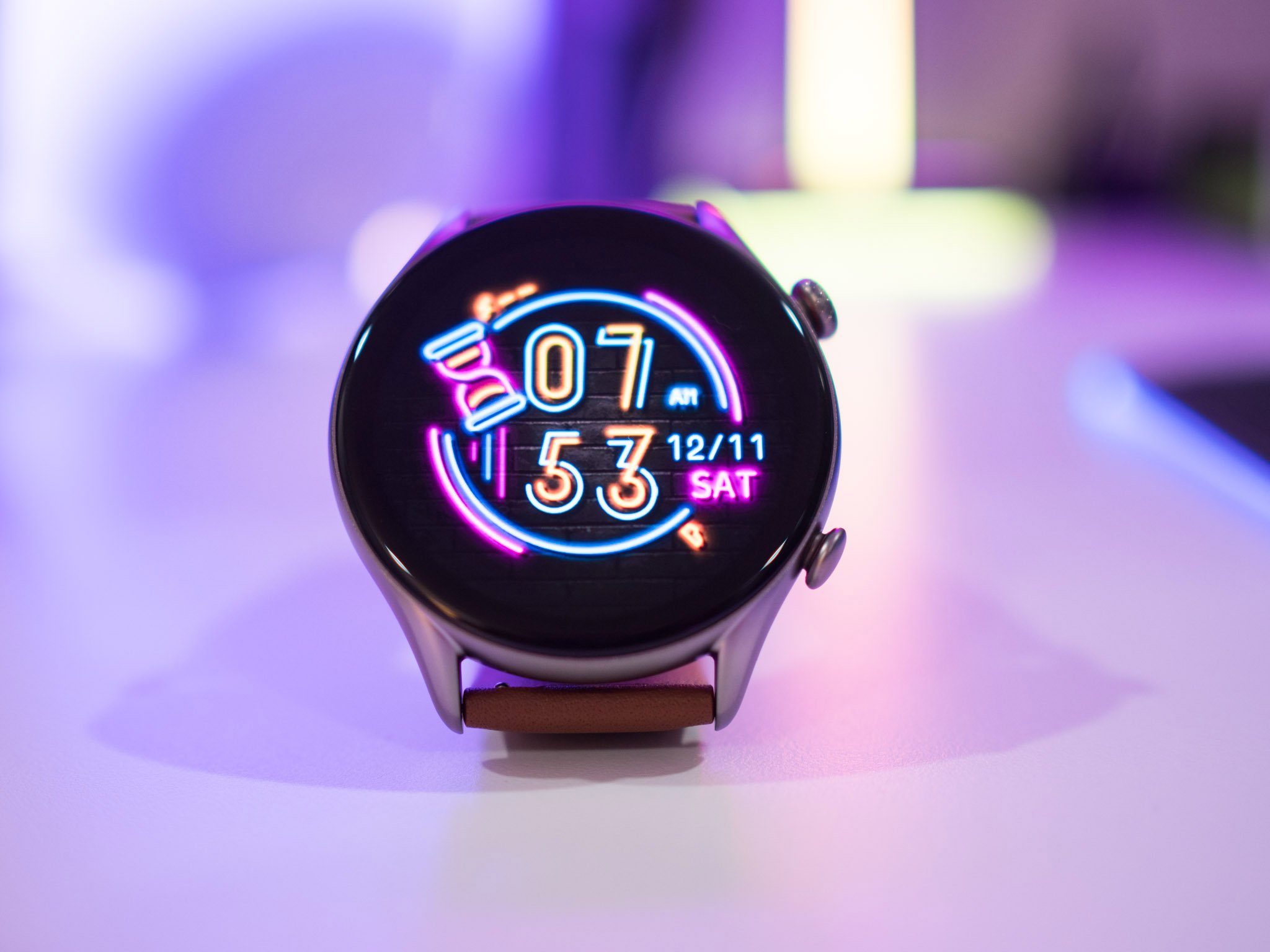Android Central Verdict
Bottom line: The GTR 3 Pro delivers the fundamentals: you get a high-quality AMOLED panel, minimalist design with a rounded chassis that looks great, extensive software customization, and 5ATM water resistance. It is lacking in a few areas — you don't get actionable notifications or integration with other services — but the six-day battery life more than makes up for it.
Pros
- +
Minimal design with a rounded chassis
- +
Vibrant AMOLED screen with always-on mode
- +
Lag-free interface with plenty of customization
- +
Six-day battery life with heavy use
- +
5ATM water resistance
Cons
- -
Leather band doesn't feel great
- -
No third-party apps
- -
Regular model offers better value
Why you can trust Android Central
Amazfit is doing all the right things in the wearable segment, as evidenced by the fact that it's now the second-largest manufacturer in this category. A big part of the company's rise is down to its budget offerings, with its $60 fitness band providing a great value.
Lately, Amazfit has ventured into the premium tier with its smartwatches, and the GTR 3 Pro is now available for $230, taking on the likes of Samsung and Fitbit. The GTR 3 Pro has a lot going for it on the hardware front: it has a large AMOLED panel with an always-on mode, a lag-free interface with a lot of customizability, plenty of health and fitness monitoring features, and a minimalist design that looks great.
But the biggest differentiator is the battery life — the GTR 3 Pro lasts nearly a week even with heavy use. With the Galaxy Watch 4 only lasting up to two days with normal use, the GTR 3 Pro has a distinct advantage in this area, so let's take a look at what the smartwatch has to offer, and whether it's a good choice for your needs.
Amazfit GTR 3 Pro: Price and availability
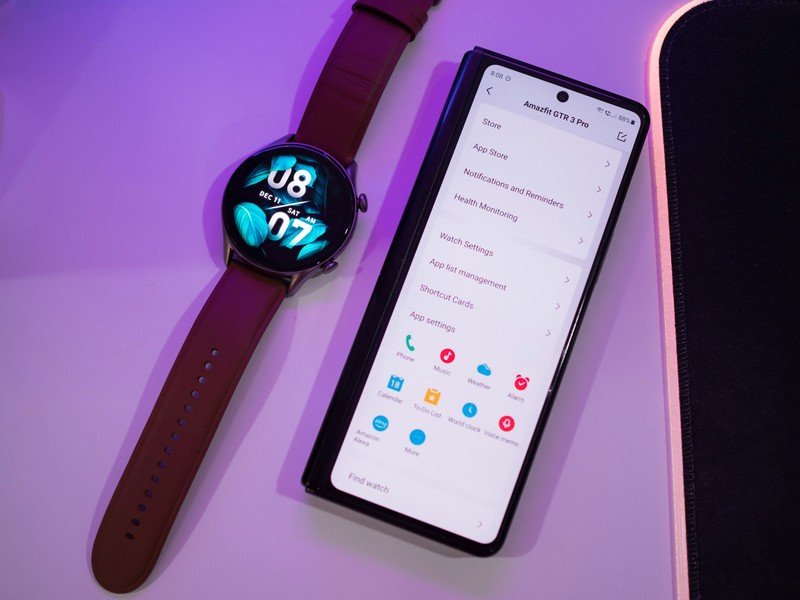
The Amazfit GTR 3 Pro made its debut in October, and the smartwatch is now available around the world. It is sold in a single 46mm variant, and you can get your hands on the smartwatch in the U.S. for $230 from various retailers. Over in the U.K., the GTR 3 Pro retails at £179 ($238), and in India, it is available on Amazon for ₹18,990 ($250).
There's also a standard variant in the series dubbed the GTR 3 that misses out on Wi-Fi connectivity and calling features, with that model available for $180.
Amazfit GTR 3 Pro: What you'll like
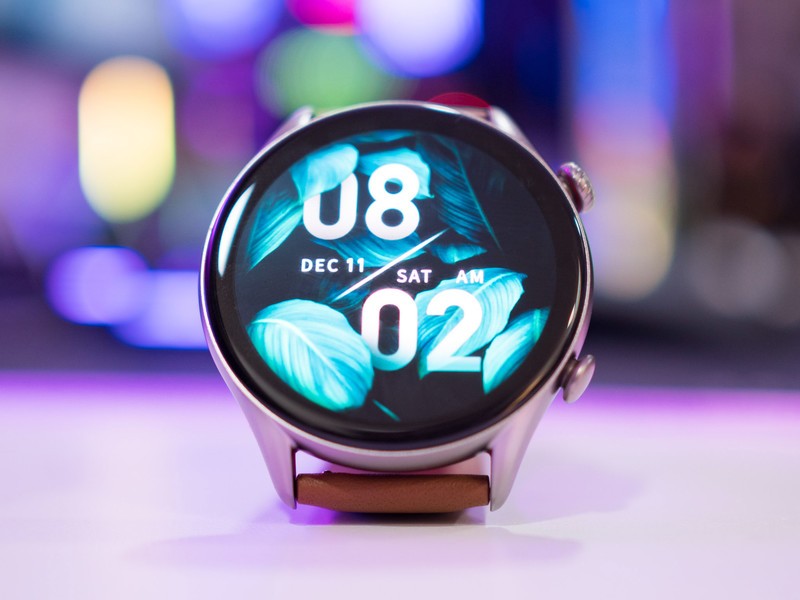
The GTR 3 Pro hits all the right notes in terms of design. The rounded chassis immediately makes it stand out, and the brushed metal design combined with the minimal aesthetic gives it an elegance that's on par with the best Android smartwatches in the market today.
With a minimalist design and rounded chassis, the GTR 3 Pro exudes elegance.
The body itself is made out of an aluminum alloy, and coming in at just 32g, it is incredibly light. You can get the GTR 3 Pro with a fluoroelastomer band that's ideal for workouts and swimming, and there's also a leather option available. I'm using the latter, and it definitely makes the smartwatch look just that little bit more upmarket.
You get standard 22mm lugs here, so you can always switch out the included bands and use your own if you wish to do so. Amazfit smartwatches tend to be quite busy in terms of the design, and in that context, the GTR 3 Pro feels like a refreshing change. There are two buttons on the right: a menu button with a rotating crown, and a customizable button that can be used for pulling up workouts, launching Alexa, or using the smartwatch as a remote camera shutter.
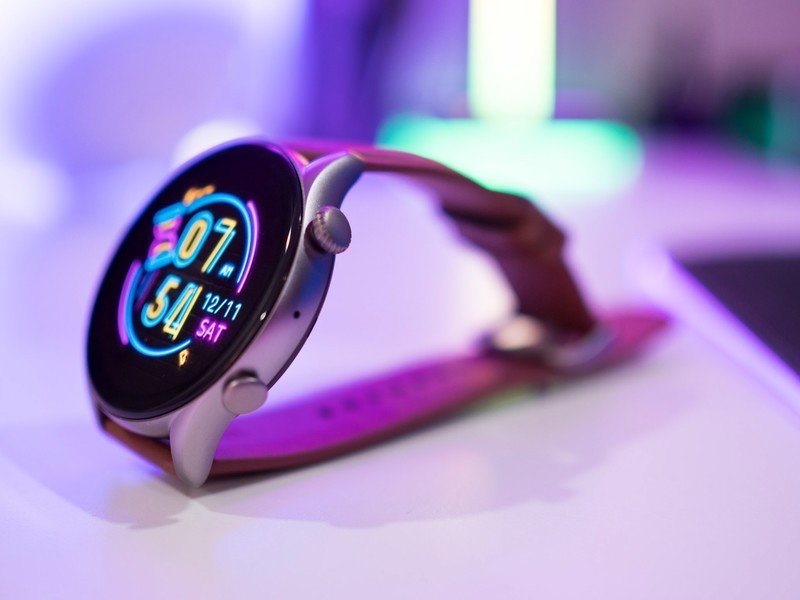
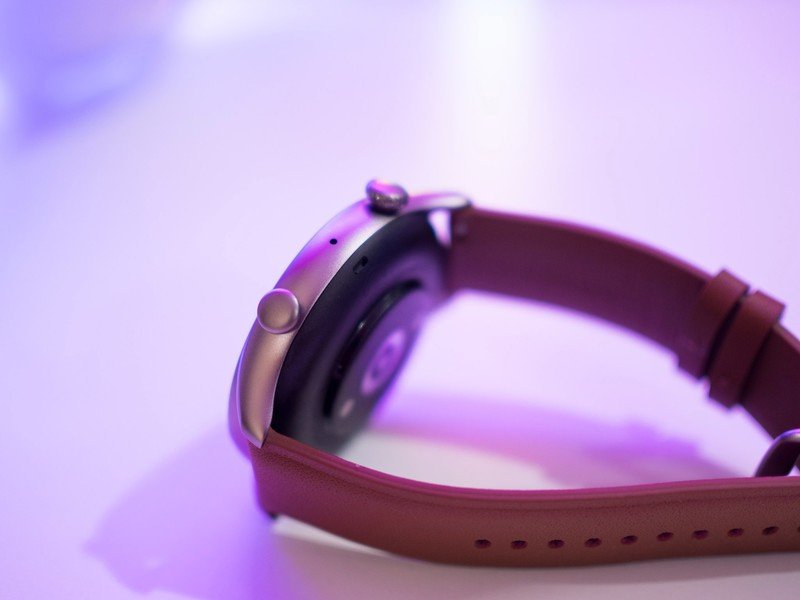
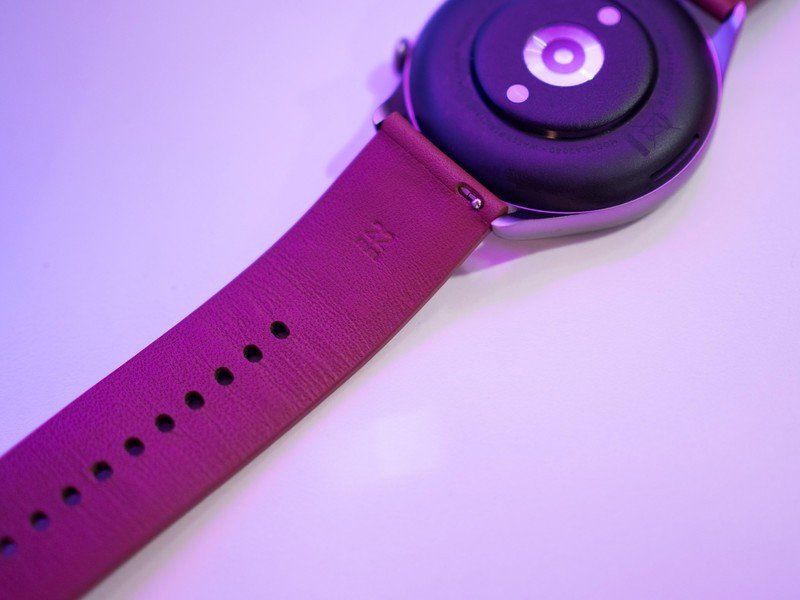
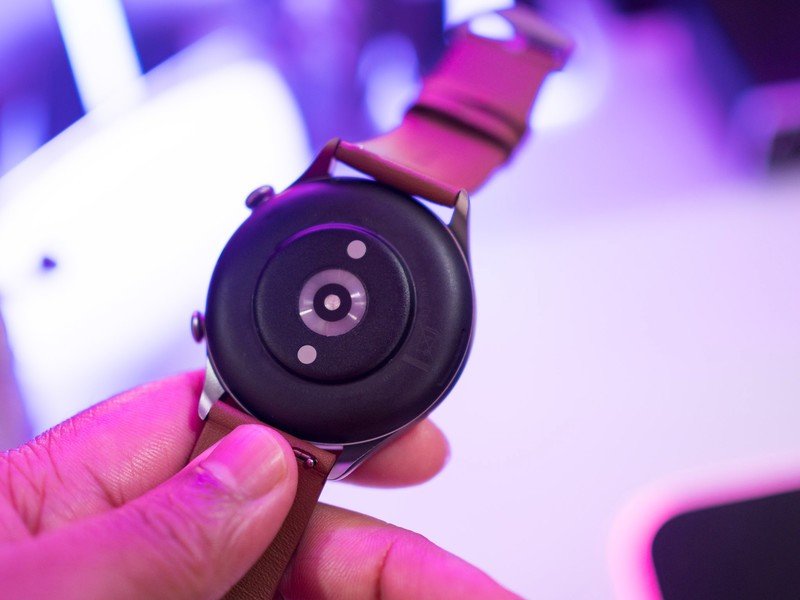
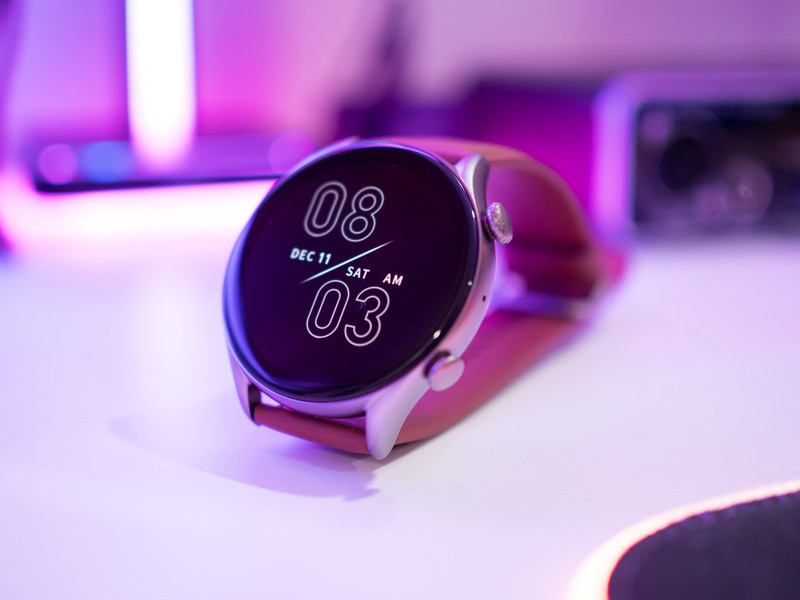
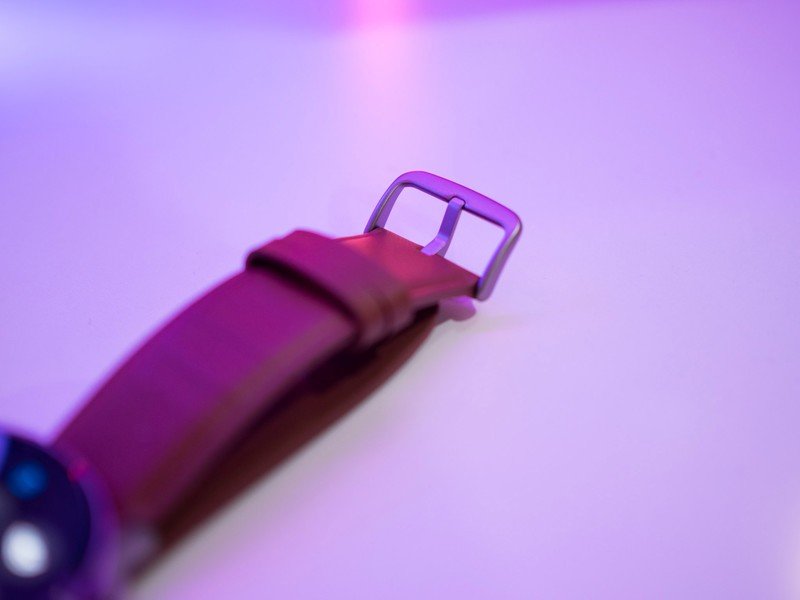
The differentiator for the GTR 3 Pro is that it is able to make calls natively, so you'll find a mic and speaker tucked away to the right. The chassis itself is water-resistant up to 5ATM, so you can use it at the pool without any issues whatsoever — just be sure to switch to a fluoroelastomer band.
Amazfit has outfitted the GTR 3 Pro with a 1.45-inch AMOLED display with a resolution of 480 x 480, leading to a pixel density of 331PPI. During the briefing, Amazfit mentioned that the panel's refresh rate now goes up to 50Hz — up from 30Hz in earlier models. While there's no way to verify this, the UI feels fluid in day-to-day use.
There are eight watch faces installed out of the box, but you get the option to pick from over a hundred options via the app, with a good selection across diverse categories to choose from. You'll find a lot of animates watch faces as well, including the ability to add your own images or set up a custom background.
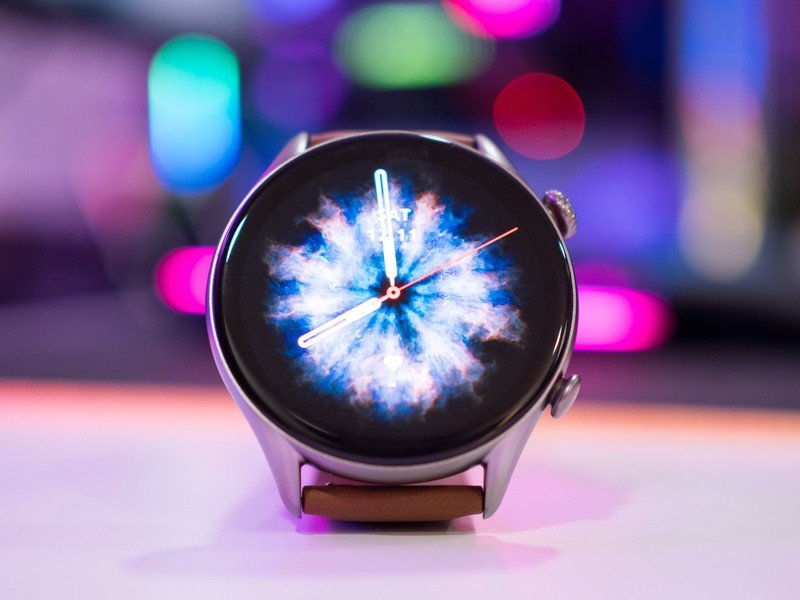
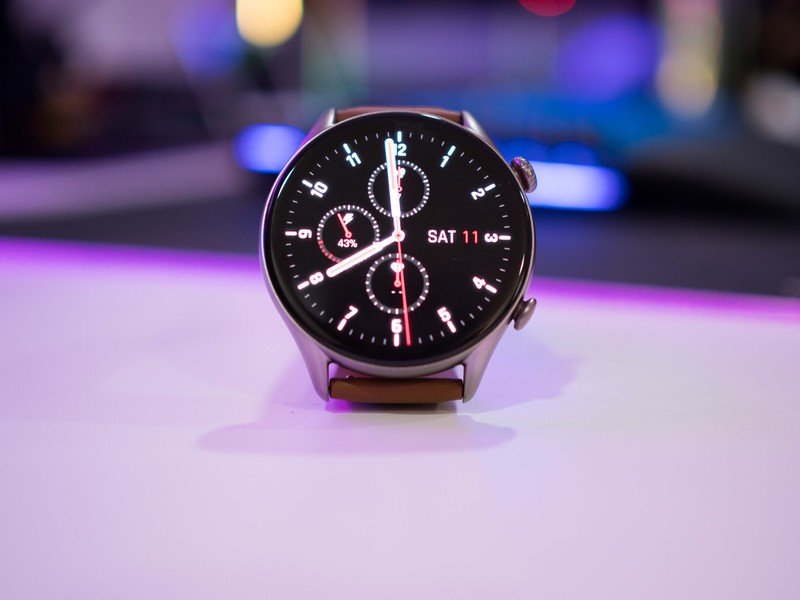
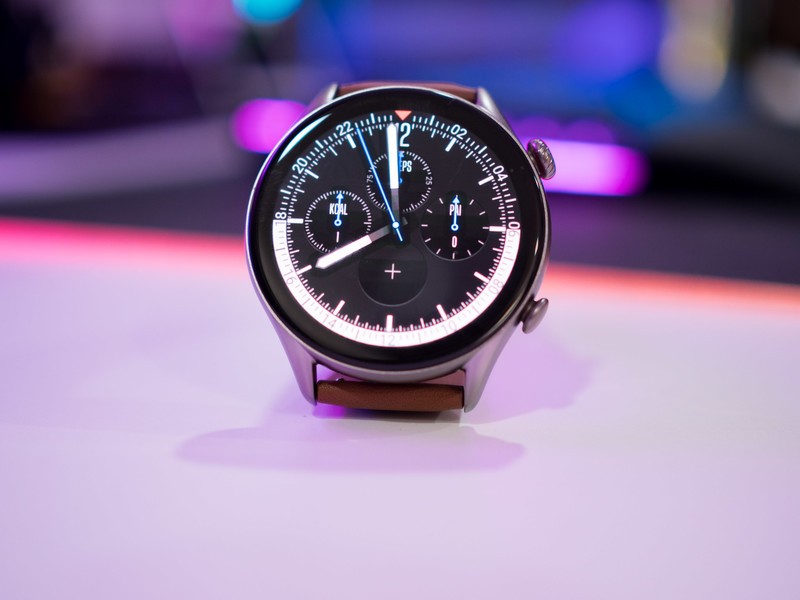
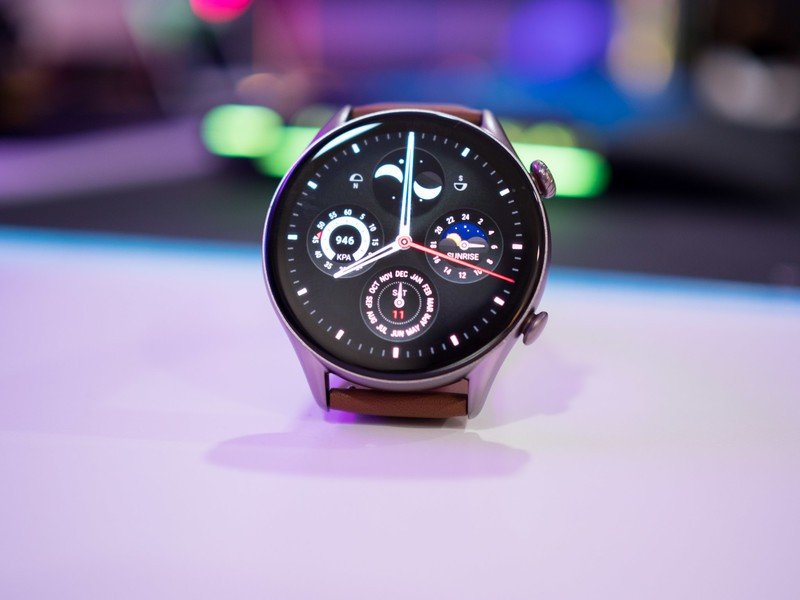
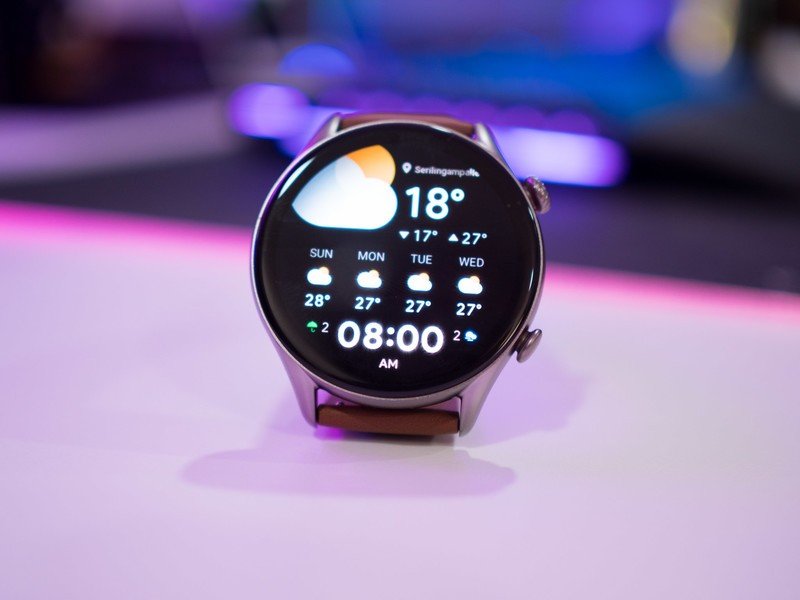
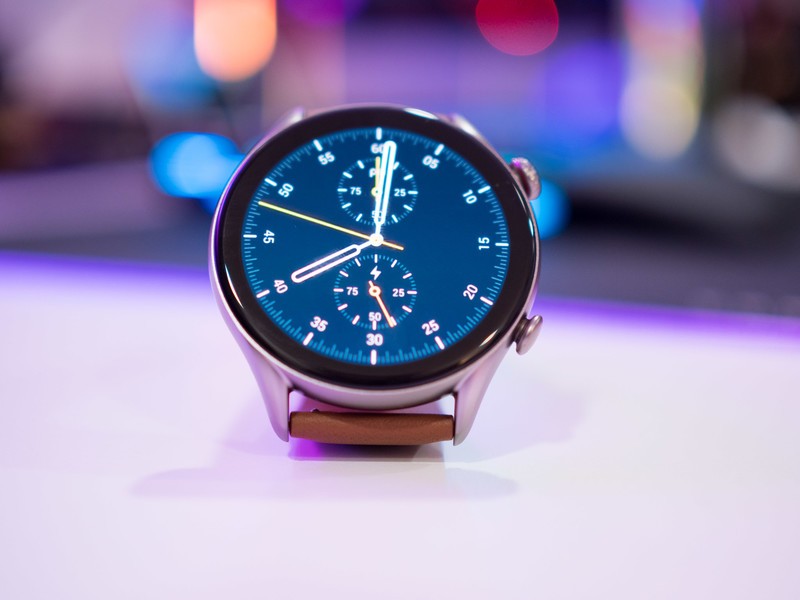
Because of the AMOLED panel, you can set up an always-on mode, with all the watch faces offering a basic version that shows the time when the screen is off. The panel itself has great colors, good information density for going through emails or messages, and I had no issues using the smartwatch under harsh sunlight. Auto mode works particularly well, cranking the brightness up to 1,000 nits outdoors.
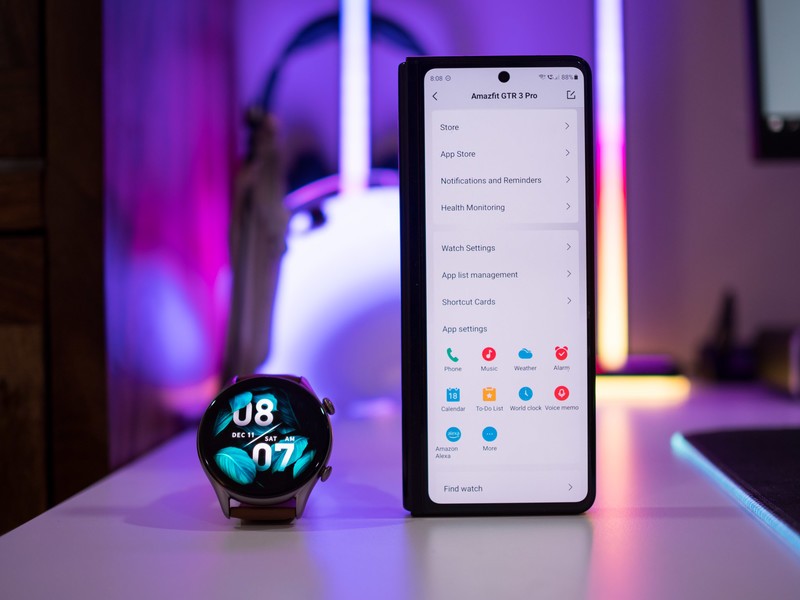
What I like about Amazfit smartwatches is the pared-down interface, and that's no different on the GTR 3 Pro. The new Zepp OS interface is lightweight and easy to navigate, and there's no lag or stutter in daily use. The interface is intuitive to use — you swipe down to access toggles, swipe left to see your widgets (these can be customized), and swipe right to view fitness and health monitoring features. Within an app, there's the option to swipe right to go back, and the menu button takes you back to the home screen.
You get a lightweight UI with plenty of customizability and health monitoring features.
The GTR 3 Pro includes the same BioTracker 3.0 module with the six photodiodes that's in the Amazfit GTS 3, and it does a great job with health monitoring. There's continuous heart rate and blood oxygen monitoring, a feature that measures your stress and breathing levels, and you can send all the data to Google Fit if you prefer to do so. With one button, you can easily measure heart rate, blood oxygen, breathing, and stress levels in 45 seconds, and I found myself using this feature quite a lot.
The GTR 3 Pro has sleep tracking as well, and it gives you a lot of insights, including differentiating between light sleep, deep sleep, and REM, and assigning a score for the quality of your sleep. This has been a mainstay on Amazfit wearables for some time now, and the amount of data provided gives you a good baseline to figure out how to improve your sleep.
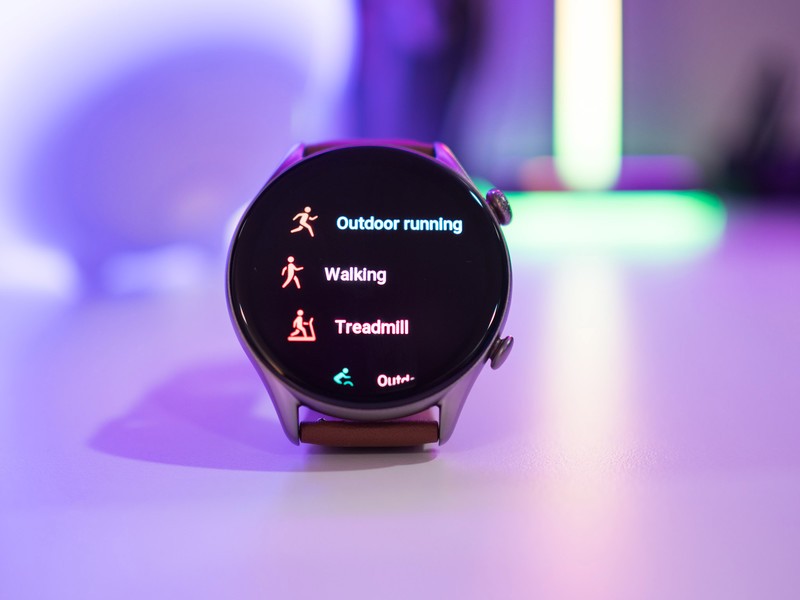
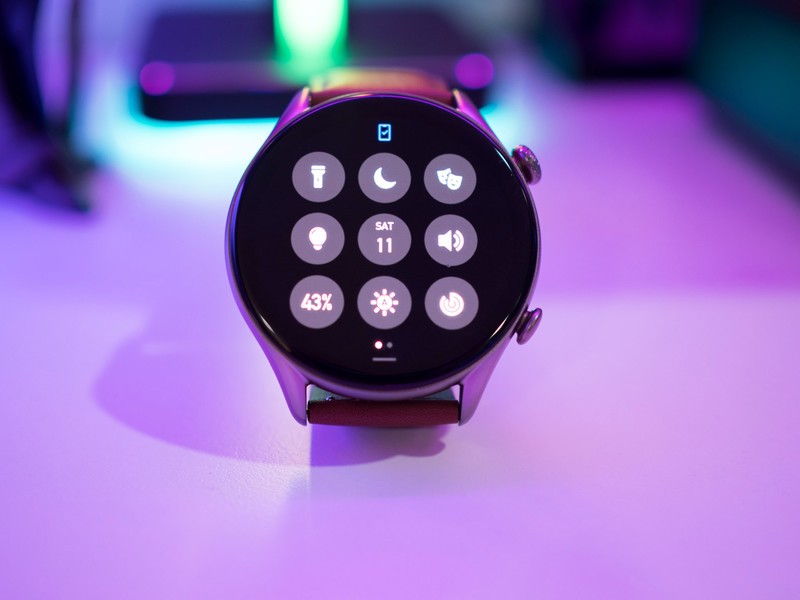
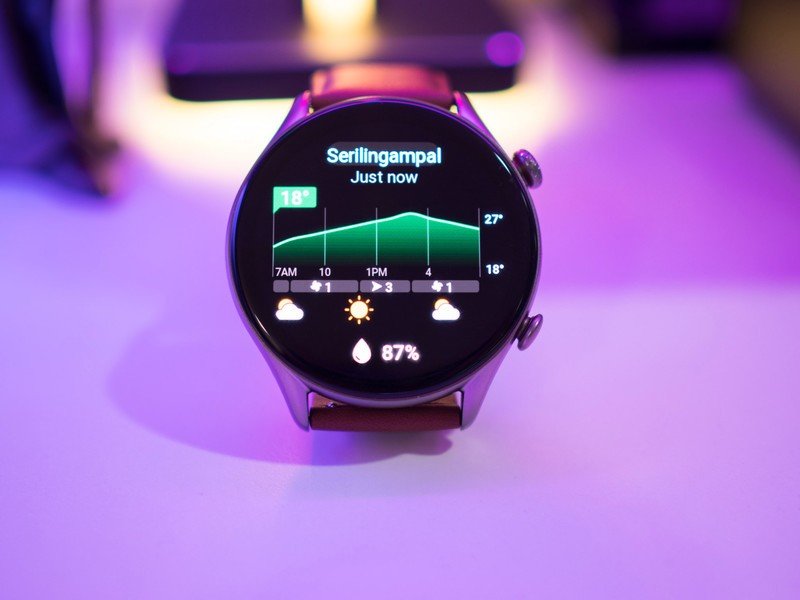
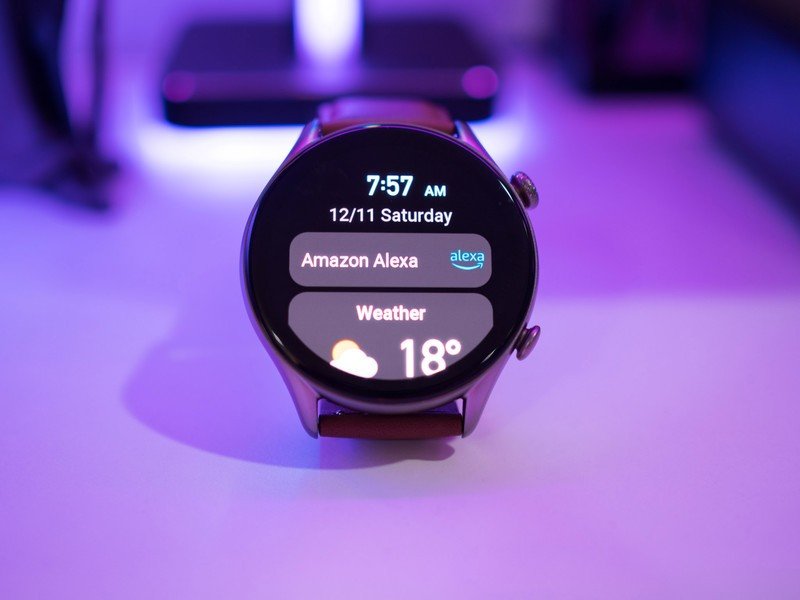
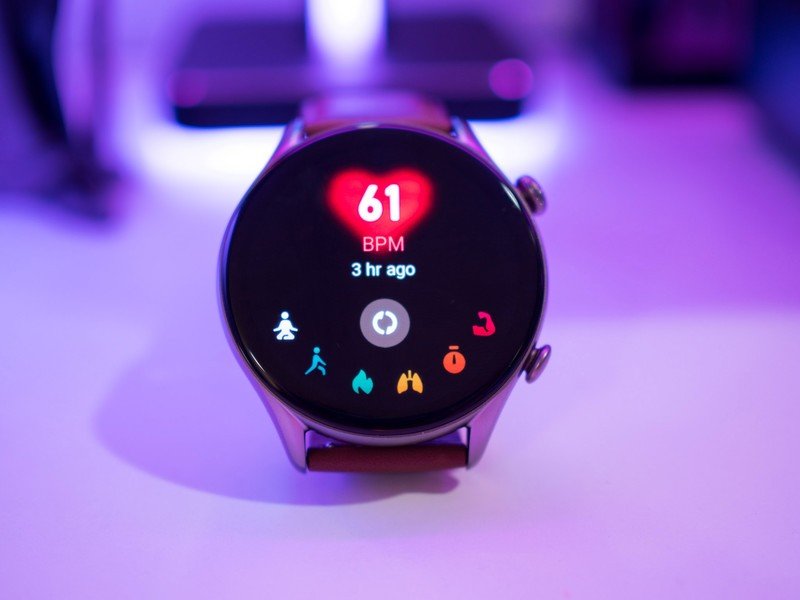
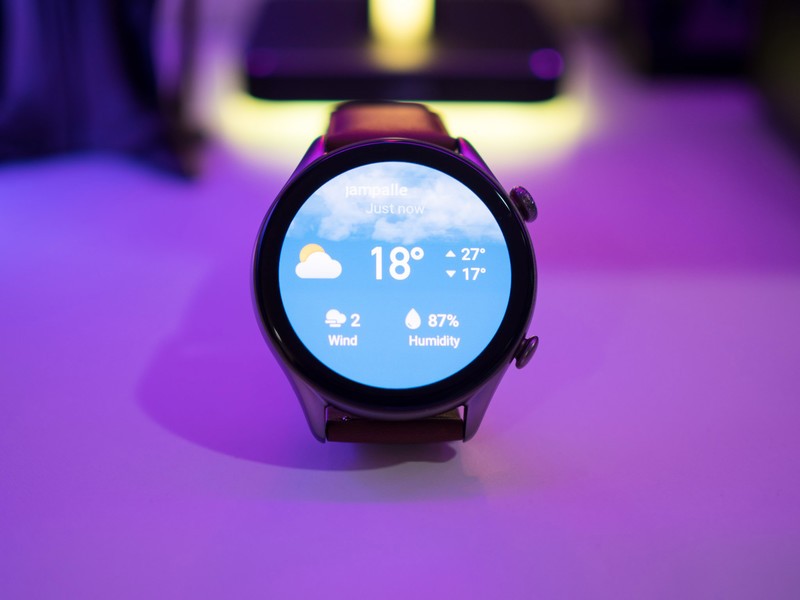
There's digital assistant integration in the form of Alexa, and you will need to link your Amazon profile to the smartwatch via the app. But once you do that, you can use Alexa to control smart home gear, play music, and much more. What's particularly nifty is that there's an offline digital assistant as well for on-device tasks like launching a workout or setting a timer — great for hands-free use.
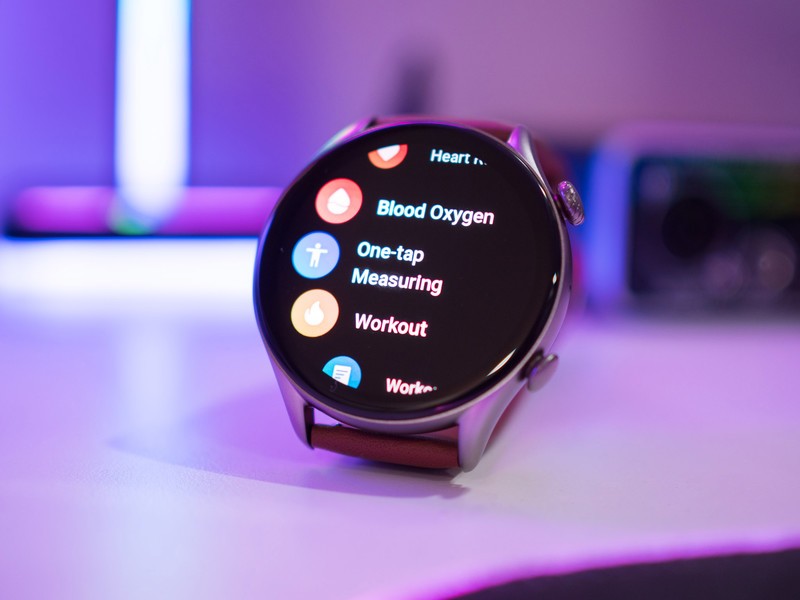
As for fitness, the GTR 3 Pro has over 150 sports modes, and it automatically recognizes activity for eight modes. The smartwatch did a good job monitoring activity for cardio sessions — with a deviation of under 10% against the Apple Watch Series 7 — and you can easily share your activity data with Google Fit.
With six-day battery life even with heavy use, the GTR 3 Pro is in a class of its own.
Battery life is a key consideration with a smartwatch, with most options in this category lasting just a day or two. Amazfit touts a 12-day battery life for the GTR 3 Pro with the 450mAh battery, but realistically you'll get up to six days of use with notifications enabled, background health monitoring, and always-on mode active.
Of course, that figure goes down if you're using the smartwatch for regular workouts; in the week that I worked out consistently, I got four days of use before needing to charge. One thing's for sure though: this thing lasts significantly longer than similar wearables from Samsung and Fitbit with the same features enabled. The main reason why I don't use a smartwatch regularly is the need to charge it daily, and thankfully that's not an issue here.
Realistically, you'll only be charging the GTR 3 Pro once a week, and when you do need to do so, the bundled dock takes just over two hours to fully charge the smartwatch.
Amazfit GTR 3 Pro: What needs work
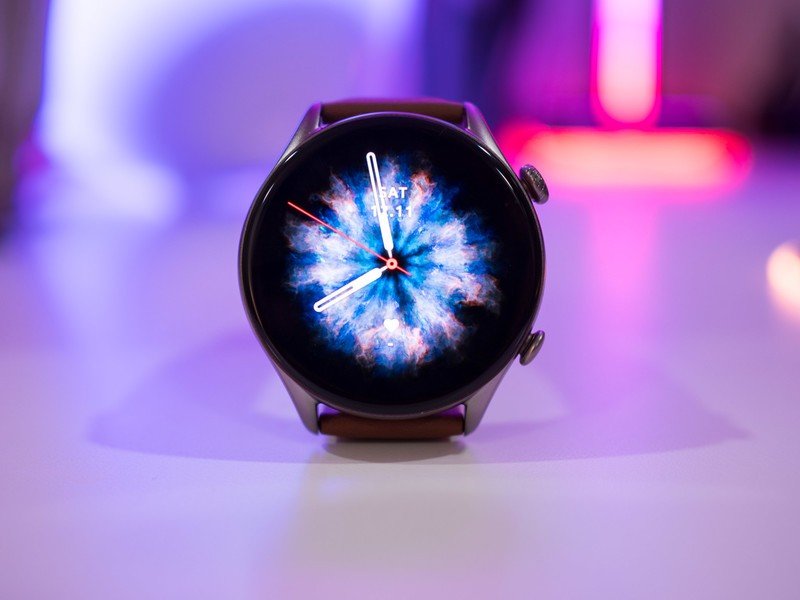
You can pick up the GTR 3 Pro with a leather band, but the included option is too stiff and coarse — definitely not in line with a $230 product. That's my only annoyance from a hardware point of view, so if you're interested in picking up this smartwatch, you're better off with the fluoroelastomer band and picking up an aftermarket leather option.
While the UI fundamentals are solid, you miss out on actionable notifications and third-party apps.
With the watch now powered by Zepp OS, you get an app store and the ability to install apps onto the device, but these are very limited right now. The ones that are available are very basic — there's a calculator, a hydration reminder utility, one for brushing your teeth, a Home Connect app that works with select brands, and one that turns the entire screen into a flashlight. It's clear that Amazfit is just starting to build out its app portfolio, but for now, there's little in the way of third-party integration.
There are other limitations on the software front. Notifications are limited in that you only get text and no images, and the biggest issue is that they're not actionable; there's no on-board keyboard, and you don't even get any canned responses. So you will have to pull out your phone if you need to respond to a text message or email.
You'll encounter lingering software issues elsewhere. I usually set up activity alerts on the smartwatches I use, and the GTR 3 Pro lets you easily enable the feature. But when setting up DND for that mode, it wouldn't recognize the time that I set (11pm to 7am). These bugs are easy enough to fix with updates, but the fact that you miss out on third-party apps and actionable notifications is a bigger deal.
Amazfit GTR 3 Pro: The competition
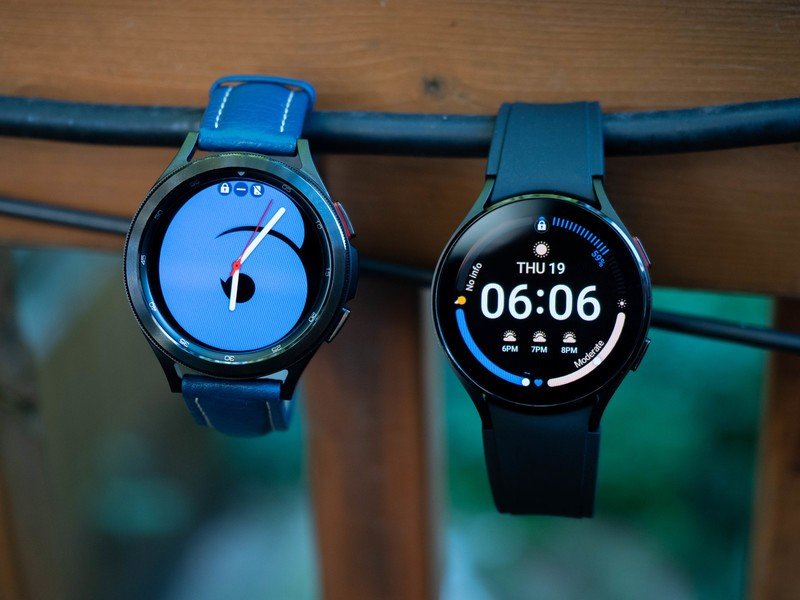
If you're looking for a new smartwatch, the Galaxy Watch 4 is an obvious choice. Samsung's latest smartwatch is built on Wear OS 3, has a sleek design, and has an extensive feature set. It does a better job integrating with the likes of Spotify and other services, has actionable notifications, and you get ECG monitoring and Samsung Pay/Google Pay. The downside is that it lasts a day with regular use, but at $240 you are getting a lot for your money.
Amazfit's own GTR 3 is a great alternative if you want a better value. The standard model misses out on Wi-Fi connectivity and the ability to make calls, but it costs $50 less — coming in at $180 — and you get the same design along with a similar set of software features. And the best part? The battery life is even better on the GTR 3.
Amazfit GTR 3 Pro: Should you buy it?
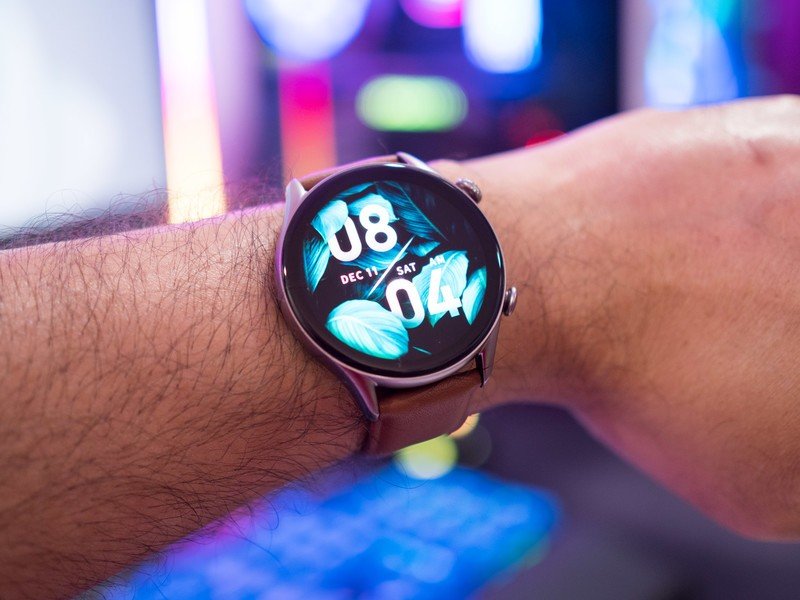
You should buy this if ...
- You want a premium smartwatch with a minimalist design
- You're looking for a smartwatch that lasts up to a week on a full charge
- You need extensive fitness and health monitoring features
- You want plenty of software customization
You shouldn't buy this if...
- You want a high-quality leather band
- You need third-party app integration
- You're looking for the best value in this segment
With the GTR 3 Pro, Amazfit is signaling its intention to go up against the best in this category. And it has managed to deliver in a lot of areas: the large AMOLED screen is great in day-to-day use, the interface is fluid and has extensive customizability, and you get all the fitness and health monitoring features you could ask for.
The GTR 3 Pro falls short when it comes to third-party integration and actionable notifications, and if that's something you care about, you will need to pick up a Wear OS smartwatch. But for the most part, the positives outweigh the shortcomings here.
4 out of 5
The GTR 3 Pro is a really good smartwatch, but if you want to maximize value, you're better off with the regular GTR 3. The standard model has a smaller 1.39-inch AMOLED screen, but you get the same rotating crown, and it has a similar set of features. The major omission is the ability to make calls and lack of built-in Wi-Fi, but the upside is that you get an even better battery life. So if you don't care about making calls from your wrist, save $50 and get the GTR 3. If you need this feature, the GTR 3 Pro is a great overall choice.
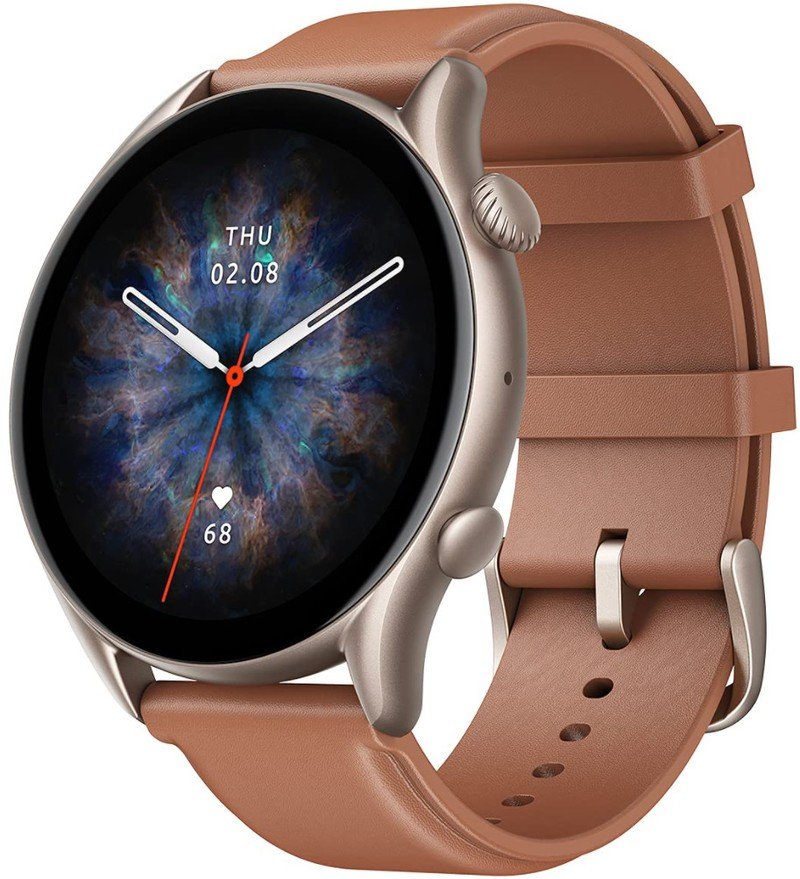
Amazfit GTR 3 Pro
Bottom line: With the GTR 3 Pro, you're getting a large AMOLED screen and a gorgeous design, lag-free interface with lots of customizability, and six-day battery life. Yes, it misses out on a few software features, but it excels at the basics, and that battery life makes it worthy of consideration.

Harish Jonnalagadda is Android Central's Senior Editor overseeing mobile coverage. In his current role, he leads the site's coverage of Chinese phone brands, networking products, and AV gear. He has been testing phones for over a decade, and has extensive experience in mobile hardware and the global semiconductor industry. Contact him on Twitter at @chunkynerd.
